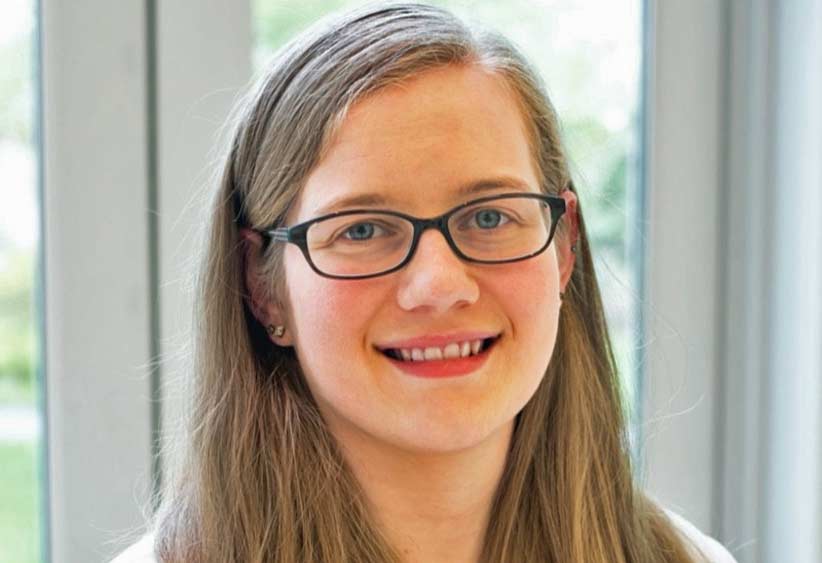
Trainee Spotlight: Joy Cote, PhD
-
Joy Cote, PhD
Post doctoral Associate
Dr. Andrew Andrews’s lab
Fox Chase Cancer Center
[email protected]Biography
From a young age, I realized that I had a deep love for all-things-science. Although my interests have focused over the years, my love for the scientific method continues to grow with each step of my career. As an undergraduate studying chemistry at College of Mount Saint Vincent, I was fortunate to have the opportunity to work on two distinct research projects. The first research project with Dr. James Fabrizio focused on understanding late stage sperm development in Drosophila as a model for male infertility in humans. Additionally, I worked with Dr. Pamela Kerrigan to study the synthesis of porphyrins to be used as a photodynamic therapy to kill cancer cells. Although both projects were very different, they both taught me valuable lessons in the scientific process including how to design and interpret data from two distinct perspectives. After graduating with a BS in chemistry with a minor in biology in 2012, I applied to graduate school at Wesleyan University in Middletown, CT to pursue an advanced degree in chemistry with a molecular biophysics focus. As a graduate student, I worked with Dr. Erika Taylor to study enzyme mechanisms and dynamics in order to better understand small molecule inhibitors and activators. I was fortunate to learn invaluable biophysical techniques that allow for a deeper understanding of protein dynamics and enzyme kinetics. In 2018 after attaining my PhD in chemistry, I pursued a postdoctoral fellowship with Dr. Andy Andrews at Fox Chase Cancer Center to expand my training in mass spectrometry to complement my background in enzymology. For my postdoctoral training at Fox Chase, I have continued to build on my previous training by focusing on post-translational modification (PTM), specifically lysine acetylation of metabolic enzymes and histones. To understand these processes my work utilizes mass spectrometry to investigate complex systems where quantitative analysis has traditionally been difficult including epigenetics and enzyme selectivity of histone acetyltransferases.
Research Overview
Acetylation of histones plays a critical role in maintaining the epigenetic state of the eukaryotic cell. One such acetylation site critical for DNA damage repair is lysine (K) residue 56 of histone H3 (H3K56ac). In Saccharomyces cerevisiae (commonly known as budding or baker’s yeast), the modification H3K56ac is thought to be driven mainly by Rtt109, a lysine acetyltransferase (KAT) that associates with histone chaperones Vps75 and Asf1. Using novel mass spectrometry approaches developed in the Andrews’ lab at Fox Chase Cancer Center, we identified that crosstalk between individual acetylation sites, K56 and K14, alters the selectivity of the Rtt109-Vps75 complex for histone H3 lysine acetylation. Moreover, we discovered that yeast KAT, Gcn5, acetylates K14 and Asf1 mediates the crosstalk between the acetylation sites.
Histone modification occurs in a dynamic stepwise fashion, with one residue modified, and followed by the next. From our studies, we hypothesize that KAT Gcn5 acetylates H3 at lysine 14. This modification allows for interaction with Asf1 to drive H3K56ac by the Rtt109-Vps75 complex. Broadly these data demonstrate that histone chaperones, like Asf1 and Vps75, may have novel functions to modulate histone acetylation and helps to explain the limited complexity that has been observed of the histone post-translational modifications patterns by global proteomic studies.
Featured publication
Cote, J.M., Kuo, Y.-M., Henry, R.A., Scherman, H., Krzizike, D.D. and Andrews, A. (2019) Two factor authentication: Asf1 mediates crosstalk between H3 K14 and K56 acetylation. Nucleic Acids Research, 2019, 47(14), 7380-7391.

